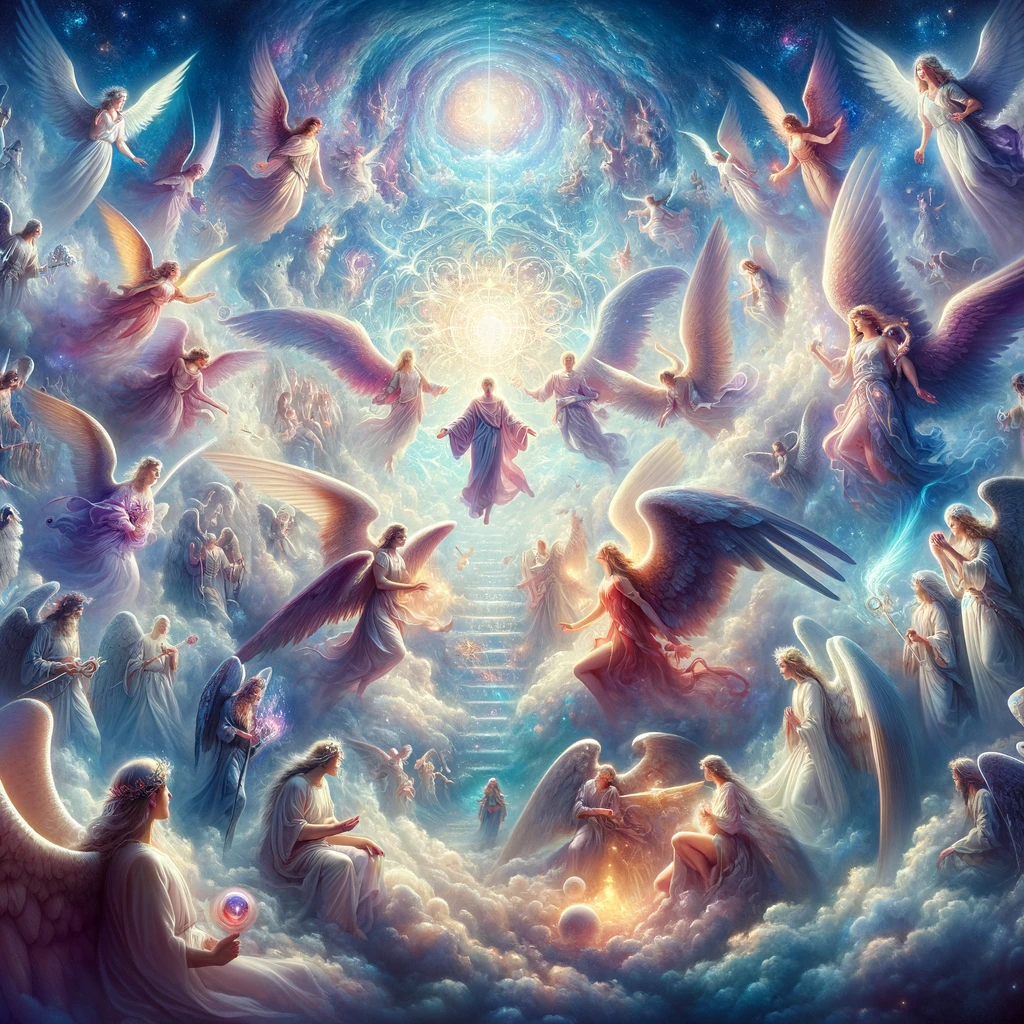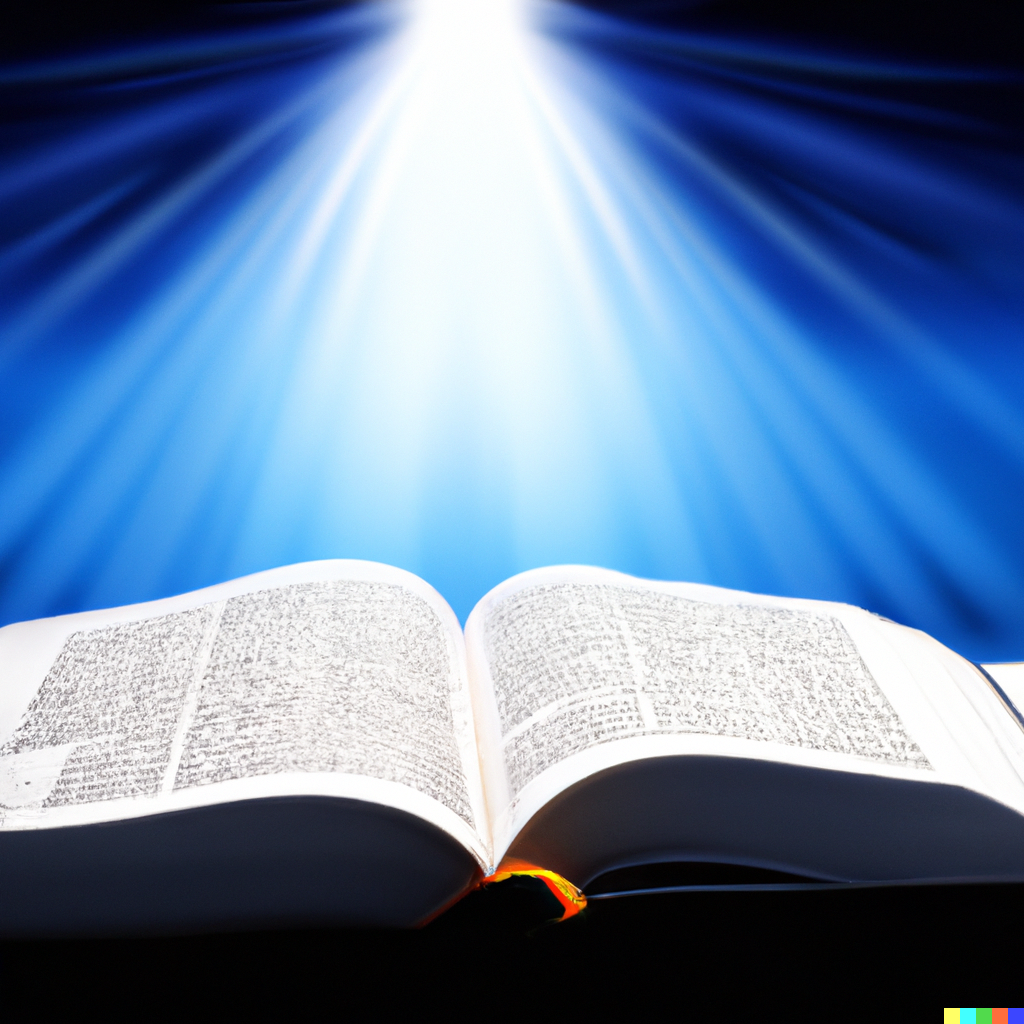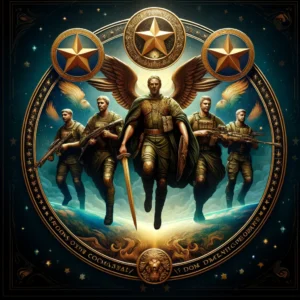
Angelology
Step into the enchanting world of Eastern Orthodox theology, where angelology takes center stage.... View more
Powers
-
Powers
Powers: Guardians of the Cosmos Warriors against evil, tasked with defending the cosmos and humanity from demonic forces.
“Powers. Acc. to medieval angelology, the sixth order of angels in the celestial hierarchy. The word is also used more generally of any celestial being who exercises control or influence over other parts of creation (cf. the English version of the *Te Deum, ‘To Thee all angels cry aloud: the heavens and all the powers therein’).”(1)“To attain to a clearer grasp of what Paul is getting at when he speaks of “principalities,” “powers,” “thrones,” etc., … we need to investigate whether these words and concepts were used by his contemporaries or in other religious traditions with which he was acquainted. Research in this direction in recent decades has indicated that Paul’s thought was not isolated from his intellectual and religious environment. Not that we find useful parallels in contemporary Greek philosophy, or—even less—in the religious thought of the Near East as a whole: but we do find a very distinct relatedness to certain lines of thought in the Jewish apocalyptic writings of Paul’s time and the immediately preceding years. These writings, devoted to the exposition of heavenly mysteries, conceive of the “powers,” “thrones,” and the like as classes of angels located on higher or lower levels in the heavens. For that matter, all Jewish thought of the period was deeply interested in angels and their influences on terrestrial events. Also in the writings of the rabbis we often read about angels, thought of as holding authority over the forces of nature (stars, snow, hail). God rules the world, it was thought, not immediately, but through the services of countless angels. Bible readers will remember that … the apocalyptic Book of Daniel speaks of angels who serve as “princes” over the kingdoms of this world. Daniel 10:13, 20. All of this fits into a larger pattern when we think that the contemporary Near-Eastern nature religions believed in a hierarchy of intermediate beings, usually called “demons,” between the divinity and this world. Yet again we must be careful not to make too broad the background of Paul’s doctrine of the Powers. His terminology points us most clearly to the above-named Jewish apocalyptic writings.” (2)“As the language of “powers” has been reintroduced to name the evils of our times, however, it has also been reduced in various ways—merely to “personal beings” or “demons,” as popularized by the novelist Frank Peretti, or, on the opposite end of the spectrum, to institutions and structures, without regard for overarching supernatural dimensions. It is essential to recover here the larger frame of reference in the biblical record. The immense scope of the powers is suggested by William Stringfellow in An Ethic for Christians and Other Aliens in a Strange Land, in which he offers the following descriptions of the principalities: • legion in species, number, variety, and name; • creatures that are fallen (meaning that they thrive in chaos, confusion, and competition); • an inverse dominion (one that works backwards—not to foster life, but to dehumanize); • not benign, but aggressive; • causing all to be victims (with or without their knowledge); • capturing leaders as acolytes enthralled by their own enslavement; • engaged in rivalry with each other since their very survival is always at stake; • and creating a new morality of survival. (3)“Powers A problematic Pauline concept (Rom. 8:38–39; Eph. 6:12); in the thought of Hendrikus Berkhof and John Yoder, the very structures of society that form the framework within which persons function.” (4)Sources:
(1) Cross, F. L., and Elizabeth A. Livingstone, eds. The Oxford dictionary of the Christian Church 2005: 1322. Print.(2) Berkhof, Hendrik. Christ and the Powers. Trans. John H. Yoder. Scottdale, PA; Waterloo, ON: Herald Press, 1977. Print.(3) Dawn, Marva J. Powers, Weakness, and the Tabernacling of God. Grand Rapids, MI; Cambridge, U.K.: William B. Eerdmans Publishing Company, 2001. Print.(4) Erickson, Millard J. The concise dictionary of Christian theology 2001: 158. Print.-
This discussion was modified 1 year, 10 months ago by
Justinian of Arizona.
-
This discussion was modified 1 year, 10 months ago by
Justinian of Arizona.
-
This discussion was modified 1 year, 10 months ago by
Justinian of Arizona.
-
This discussion was modified 1 year, 10 months ago by
Justinian of Arizona.
-
This discussion was modified 1 year, 10 months ago by
Justinian of Arizona.
-
This discussion was modified 1 year, 10 months ago by
Justinian of Arizona.
-
This discussion was modified 1 year, 10 months ago by
Log in to reply.


